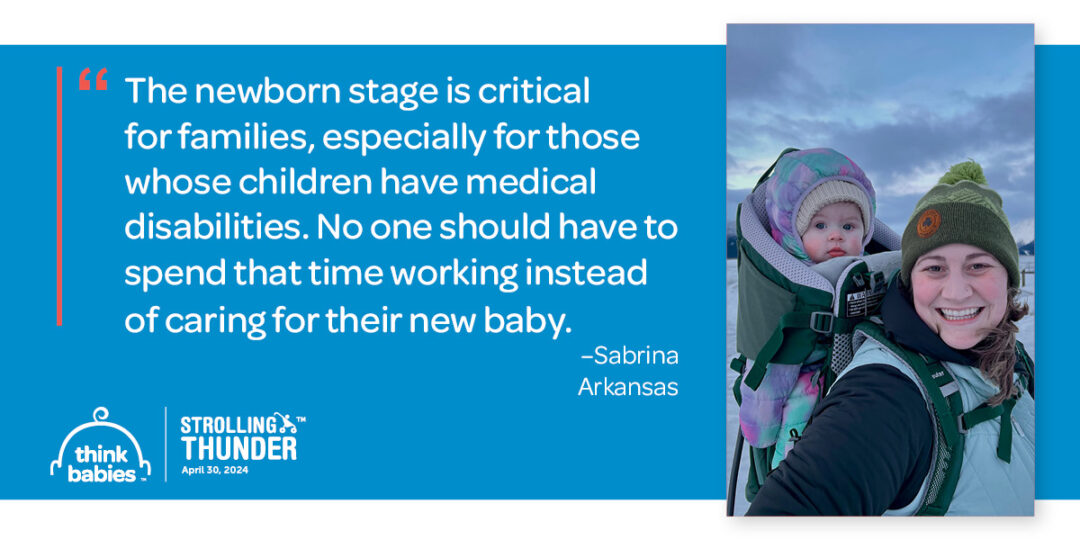Time for parents to bond with and care for their babies.
America’s future needs paid family and medical leave.
The time right after a baby is born or adopted is a time of extraordinary growth, development, and connection for a family. Parents and their babies need dedicated time together to develop close, nurturing relationships that set the foundation for a child’s healthy development. They also need time to care for their child or other family members during serious illness.
When parents have a new baby, unhurried time helps them become attuned to the marvelous development occurring in that tiny, but demanding infant. These positive, consistent relationships during babies’ earliest days, weeks, and months result in children who are better equipped for success in school and in life. Paid family leave is also associated with better rates and length of breastfeeding, higher rates of immunizations and participation in well-child checks, and improved opportunity for mothers’ recovery and parental adjustment.
Twenty-five years ago, the Family and Medical Leave Act (FMLA) took effect. Since then, it’s been used more than 200 million times by people who were able to take time off from work to welcome a new baby, care for a seriously ill child or loved one, or to address their own serious health conditions — without fear of losing their jobs or health insurance coverage. But more than two decades later, it currently only serves 40 percent of the workforce.
Paid leave is a must have for babies and toddlers. Learn More.

